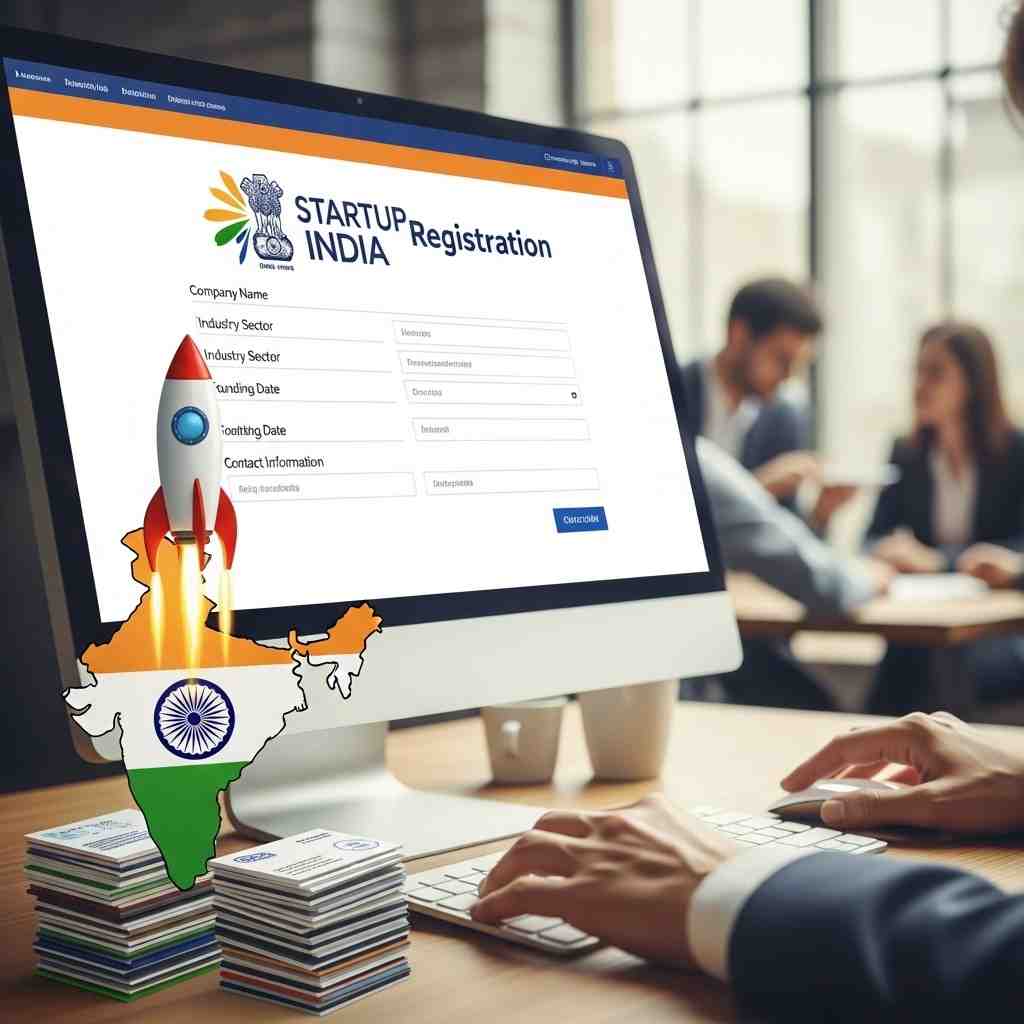


Learn how to check your eligibility for Startup India Registration with DPIIT criteria and practical business examples.
The Government of India’s Startup India initiative has opened new doors for entrepreneurs by offering tax benefits, funding opportunities, and regulatory ease. However, not every new business qualifies for these benefits. To take full advantage of Startup India Registration, it’s essential to understand whether your business is eligible under the Department for Promotion of Industry and Internal Trade (DPIIT) criteria. Here’s a clear explanation of eligibility rules with examples to help you decide.
What Is Startup India Registration?
Startup India Registration is the formal recognition granted by DPIIT under the Startup India initiative. Once recognized, your business becomes eligible for several benefits such as tax exemptions, access to government tenders, self-certification under labor and environment laws, and easier IPR (Intellectual Property Rights) procedures.
Eligibility Criteria for Startup India Registration
DPIIT has laid down specific eligibility conditions that your business must fulfill to qualify for Startup India Registration. Here’s a breakdown of those conditions:
1. Type of Entity
Your business must be registered as one of the following:
Private Limited Company (under Companies Act, 2013)
Registered Partnership Firm (under Indian Partnership Act, 1932)
Limited Liability Partnership (under LLP Act, 2008)
Sole proprietorships and unregistered partnerships are not eligible.
Example: If you’re running a sole proprietorship bakery business, you will need to convert it into a private limited company or LLP to qualify.
2. Age of the Business
The company must be less than 10 years old from the date of its incorporation or registration.
Example: A tech startup incorporated in 2018 is eligible, but a company registered in 2012 is not.
3. Annual Turnover
Your startup’s annual turnover should not have exceeded Rs. 100 crore in any financial year since incorporation.
Example: If your business crossed Rs. 100 crore turnover in FY 2023-24, you won’t be eligible, even if it was lower in earlier years.
4. Innovation and Scalability
This is one of the key conditions. Your startup must be:
Working towards innovation or improvement of existing products or services, or
Generating employment or creating wealth.
Mere duplication of existing business models without significant value addition is not considered innovative.
Example: A mobile app for car rentals that adds AI-based vehicle tracking may qualify. But a simple replica of an existing taxi booking app without new features might not.
5. Original Entity
Your business should not be formed by splitting up or reconstructing an already existing business.
Example: If you shut down your previous firm and re-register the same business with a new name just to get DPIIT recognition, you’ll be disqualified.
6. PAN and GST
Although not mandatory at the initial stage, having a PAN and GST registration supports your credibility and may be required later for tax benefits.
7. Recommendation Letter (No Longer Mandatory)
Earlier, startups needed a recommendation letter from an incubator or industry association. As of now, this requirement has been removed to simplify the process.
How to Perform an Eligibility Self-Check
To check your business eligibility:
Verify your business structure (Private Ltd., LLP, or Partnership Firm)
Check incorporation date (should be under 10 years)
Review turnover statements (ensure under Rs. 100 crore per year)
Prepare a short brief explaining how your product/service is innovative or scalable
Confirm your business is not a result of restructuring or splitting
Once these boxes are ticked, you can proceed to apply on the Startup India portal.
Where to Register?
Visit the official Startup India portal and create an account. After logging in, go to the DPIIT Recognition section, fill the online form, and upload the necessary documents including:
Certificate of incorporation/registration
Director/partner details
Brief about the business and innovation
After submission, DPIIT usually takes 2–7 working days to review and approve your application.
Common Reasons for Rejection
Here are some common reasons applications get rejected:
Submitting as a sole proprietorship
Providing unclear or generic descriptions of innovation
Missing or invalid incorporation documents
Business exceeding the 10-year or Rs. 100 crore limits
Conclusion
Startup India Registration offers a wide range of benefits, but only if your business qualifies under the DPIIT guidelines. Before applying, it’s crucial to assess your business against the eligibility checklist. If your business fits all the parameters, registering on the Startup India portal could be your first step toward scaling faster, raising capital, and saving on taxes.
If you’re unsure, consult a legal or startup advisory firm to help you through the process and avoid mistakes that could cost you time and opportunities.
